Francophile Favourites: An Interview with WWII Veteran Mel Corren
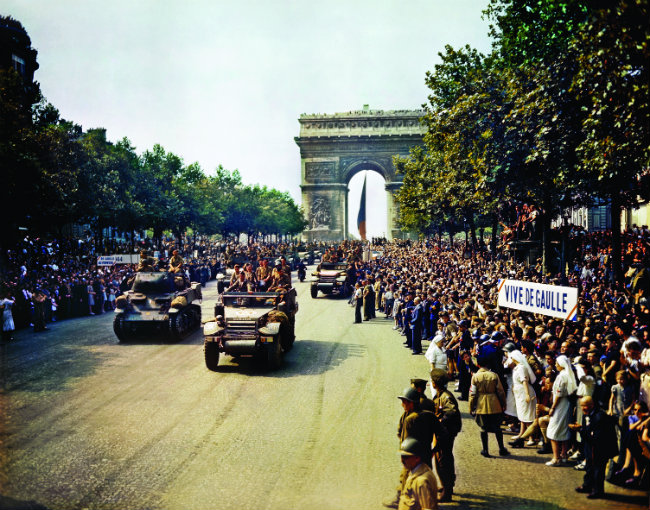
I arrived in England in September of 1943. During the ten months I spent there, I experienced London air raids, the introduction of the V1 rockets and the departure of the Glider Troops to Normandy from the airfield close to where I was stationed. Then, on D-Day +60, I was fortuitously chosen to join the cadre for the future Headquarters of the European Theater, Seine Section, stationed in Paris.
On the day we left England, we were gathered at a railhead, taken to an airfield and flown to Valognes where we awaited the Liberation of Paris.
We entered the city on the 12th day after the Liberation; our first view was of the Palais du Trocadéro across the Seine from the Eiffel Tower.
BRIEF ENCOUNTER
On boarding the Metro train, I felt as if I were the main character in a dream. I couldn’t sit still and felt compelled to walk around. When I reached the back of the train, I came upon a man dressed just like a diplomat in an overcoat with a velvet collar, and set out as trim and neat as a pin. He was seated at the rear of the last car and used a dictionary to engage me in conversation. This brought to my mind the little booklet which we had received at the airfield before flying to France. An entire chapter was devoted to warning us that there would be collaborators seeking GI uniforms to use for smuggling German soldiers out of the city. It warned us that if we fell into their hands, we could end up floating in the Seine.
Nevertheless, we conversed for several minutes until the loudspeaker announced that the Metro was closing for the night. On exiting, I told the man that I was going out to look for some nightlife.
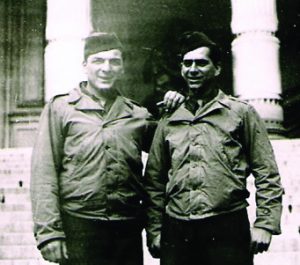
Mel Corren (right) with fellow GI Bob in Paris in 1945
It was a lie, but I wanted to get out of a situation I had decided was too dangerous. He informed me that since there was still German resistance on the Left Bank I would be safer with him. So there I was, not knowing the Left Bank from the Right, but suspecting that this was a story he had concocted to get me to stay with him – for the sake of my uniform. However, when he pointed out the sound of small arms fire coming from across the river, I was convinced that perhaps the best option was to take my chances with him. We finally arrived at a set of elegant wrought-iron doors through which he led me. It seemed like a long climb to the second floor as I thought of all the possibilities that might be in the offing. To add to the suspense, we stopped at a door on which he tattooed a signal-type knock. This display of cloak and dagger made me even more apprehensive about my immediate future, but I didn’t have long to contemplate because from the other side of the door came an equally unsettling coded response. My newfound friend then announced that he had returned with an American soldier and at this point my stomach flipped over.
Inside was a woman and a young boy of about 15, introduced as his wife and stepson. There ensued the usual salutations and questions, answered with a dictionary, followed by a meal of K-rations. This sparse but, nevertheless, delicious repast was enjoyed at a lovely table.
PARIS SHENANIGANS
While in Paris, I had many guests who visited me on leave. My cousin Irv, who was at the front in Field Artillery, came twice.
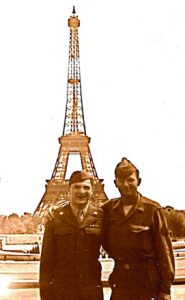
Mel Corren with his cousin Irv in Paris in 1945
The first time, we went to the famous American Bar and being the only GIs in the place that night, were celebrities; everyone wanted to buy us a drink. Irv, who wasn’t accustomed to drinking hard liquor, chose Manhattans because they tasted so sweet. We had them lined up and drank them quickly in order to go on to the GI cabaret, where we got a table, two dancing partners, and a bottle of champagne.
After toasting one another, we escorted our two partners on to the dance floor where we proceeded to ‘trip the light fantastic’. A few minutes later, when I looked around to see where Irv and his partner were, I spotted him alone at the table with his face in the plate. We were helped back to my billet by two pompiers.
AND THERE WAS LIGHT
On May 8, 1945, the day the war in Europe ended, people poured into the streets by the thousands, dancing, kissing and drinking. The most memorable event for me occurred on the terrace of the Trocadéro. I was looking across the river at the very moment the Eiffel Tower was re-lit after four ugly and degrading years of darkness.
From France Today magazine
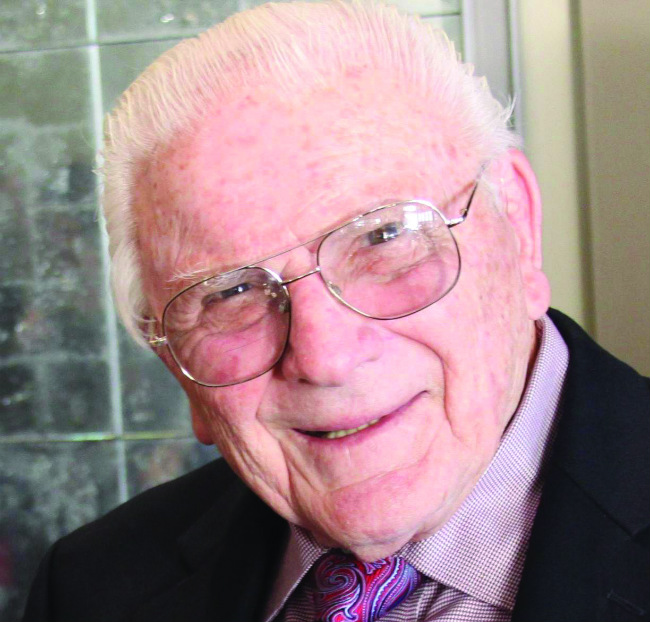
WWII veteran Mel Corren
Share to: Facebook Twitter LinkedIn Email
Leave a reply
Your email address will not be published. Required fields are marked *

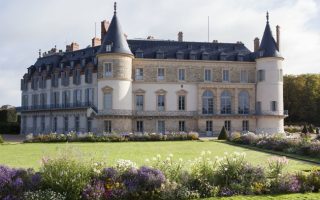
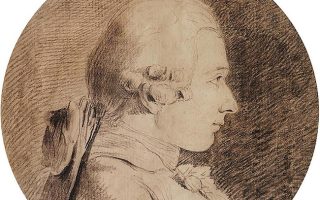
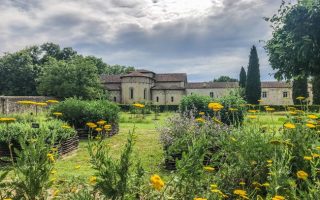
REPLY
REPLY
REPLY
REPLY